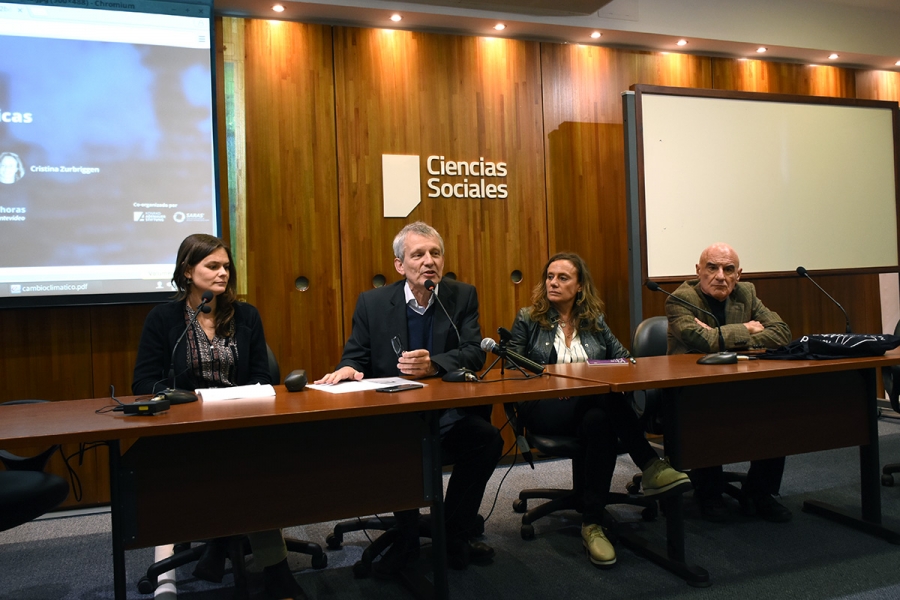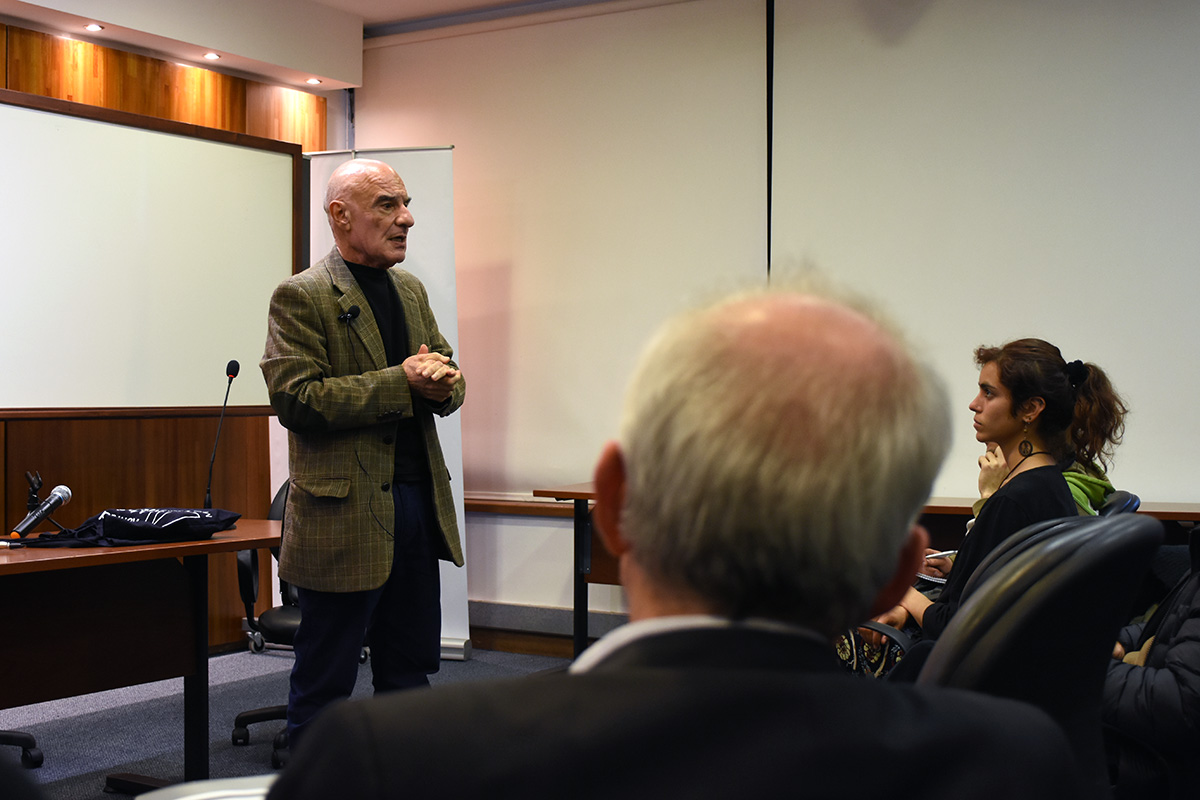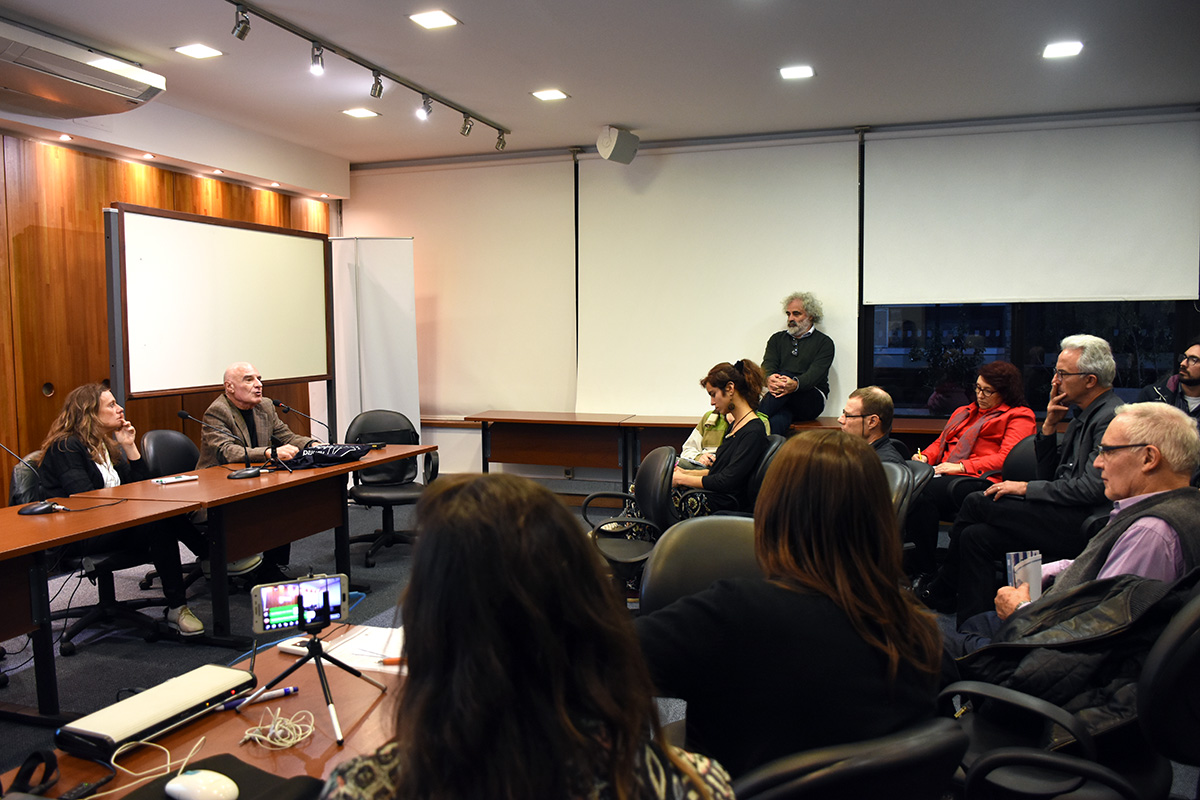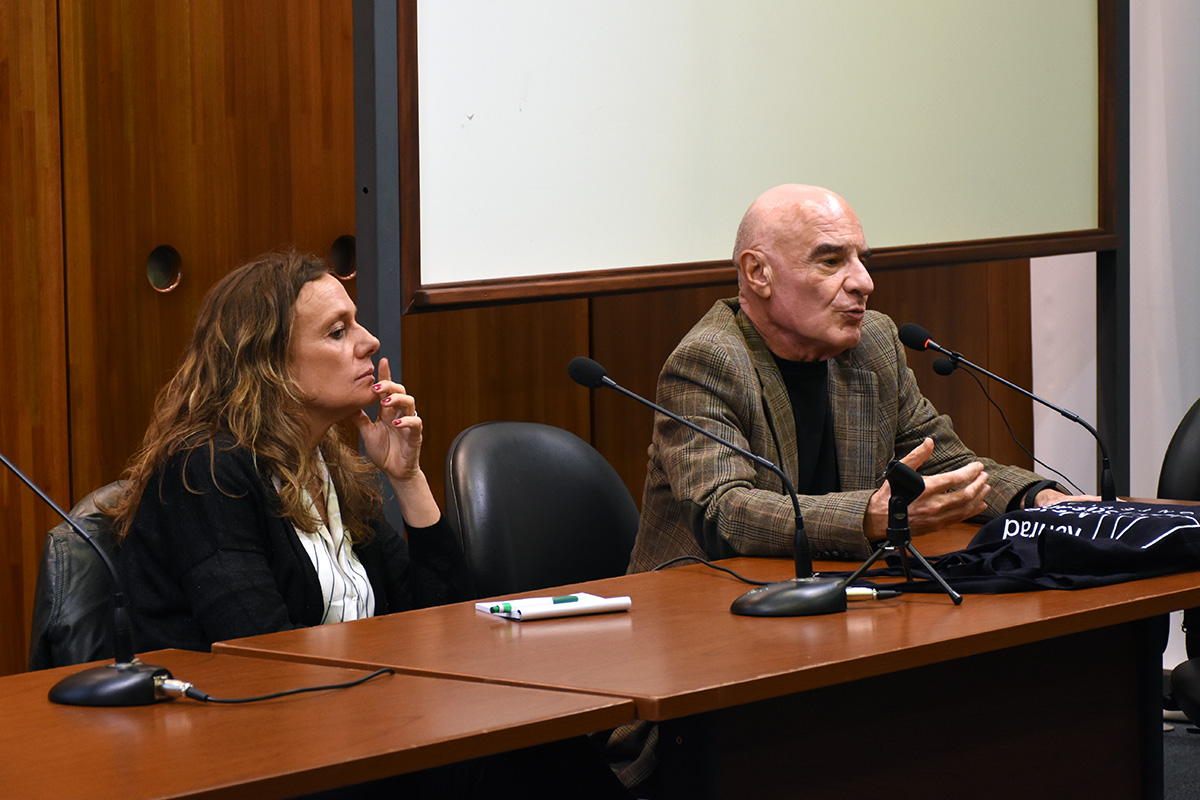Colloquium “Climate Policies: Challenges and perspectives” full recording

The colloquium “Climate Policies: Challenges and perspectives”, an activity co-organized by SARAS Institute and Konrad Adenauer Foundation Montevideo, took place last September 13th at the Faculty of Social Sciences, University of the Republic, Montevideo.
The speakers of the event were Prof. Eduardo Viola, an international expert on climate policies and member of SARAS Advisory Board, and Prof. Cristina Zurbriggen (also a member of SARAS Advisory Board). They addressed topics linked to the challenges faced in the context of climate change and the responses given from the realm of public policy..
Viola had come to Uruguay to deliver an international course on Climate Policies and Global Energy at SARAS, with the participation of a number of postgraduate students and governmental technicians from Uruguay, Chile, Perú and Germany, working on issues related to environment, public policy, international relations, economy, agriculture and energy.
The opening speech was delivered by Manfred Steffen (Project Coordinator at the Regional Program on “Political Parties and Democracy in Latin America” from Konrad Adenauer Foundation, and member of SARAS Executive Team) and Micaela Trimble (Research and Cooperation Coordinator at SARAS).
Steffen highlighted the importance of this event as a key space for reflection on climatic policies and the challenges that they represent within the current context. Trimble introduced the work developed by SARAS and highlighted the main inter and transdisciplinary projects carried out in relation to climate issues.
Viola focused his presentation on the current situation regarding climate change and the incremental mean-temperature rise trend globally. Viola stressed that we are currently in a phase of incremental climate change, with recurrent extreme climate events of higher intensity and frequency. Furthermore, he pointed out that the rate of global carbon dioxide emissions has continued to grow since the year 2000, with a yearly average incremental rate of 2% despite some particular drops recorded. He also highlighted that China and India are the two countries contributing the most to this rise, while a decrease in emissions is being recorded (albeit insufficiently) in northern Europe. Finally, he addressed the role played by the United States with respect to emissions and their incidence in international climate policies, also suggesting possible solutions..
During her presentation, Zurbriggen addressed the main milestones and challenges with respect to politics and climate policies in Uruguay. Zurbriggen exposed the main transformations seen nationally since 2007, and highlighted that climate change is a complex issue and as such, needs to be approached from a complexity perspective. She pointed out that the National Policy on Climate Change (2017), developed by the Uruguayan government in a collaborative dialogic process with a number of actors, represented a major innovation in terms of its formulation in generating an action plan rooted in collective understanding. She highlighted that, despite the great complexity and uncertainty of this topic, it is necessary to make decisions in which it is crucial to have quality information when trying to understand the phenomenon and trigger the needed transformations.




After the round of presentations delivered by the two researchers, a rich space for dialogue and questions from participants followed.
The activity was broadcasted live through SARAS Institute website and Youtube channel.
Here is the full recording of the event:
About the presenters:
Eduardo Viola
Full Professor of International Relations, University of Brasilia, since 1993 and Senior Researcher of the Brazilian National Council for Scientific and Technological Development (CNPQ) since 1986. At present He is the Chair of the Brazilian Research Network on International Relations and Climate Change. Viola has a Masters in Sociology from the University of Campinas (1978), a Doctorate in Political Science from the University of Sao Paulo (1982) and a Post-doctorate in International Political Economy from the University of Colorado at Boulder. He teaches the Earth Systems Governance Programme at the University of Lundt (Sweden). Eduardo Viola has been visiting professor in several international universities, among them: Stanford, Colorado at Boulder, Texas at Austin, Notre Dame and Amsterdam. He is and has been a member of several scientific committees and has published eight books, more than seventy articles in journals, more than fifty book chapters in several countries and languages on issues of Globalization and Governance, Global Environmental Policy, International Relations in South America, and International Political Economics on Energy and Climate Change. Currently the focus of his research is “The international system in the Anthropocene”. He is interviewed frequently by TV channels, news radios and newspapers.
Cristina Zurbriggen
Cristina Zurbriggen is a PhD in Political Science, Eberhard–Karks University, Tubingen, Germany. She is currently a professor at the Faculty of Social Sciences, University of the Republic (Uruguay). She is a member of the National System of Researchers, Level II (since 2009). Previously, she was the Director of the Latin American Faculty of Social Sciences (FLACSO), Uruguay (2009-2012). She has been a Visiting Professor at Mexico, Spain, Ireland, Argentina, Colombia, Mexico, Canada, England and Germany. Her research has addressed governance, policy networks and sustainable agriculture (meat traceability, soil erosion, water sustainability). Her current main interests focus on innovation Labs, co-creation methodology and other system methods to investigate the future of complex public issues. She is a member of the Co-Creative Capacity Pursuit funded by the National Socio-Environmental Synthesis Center (SESYNC), Maryland, USA.
